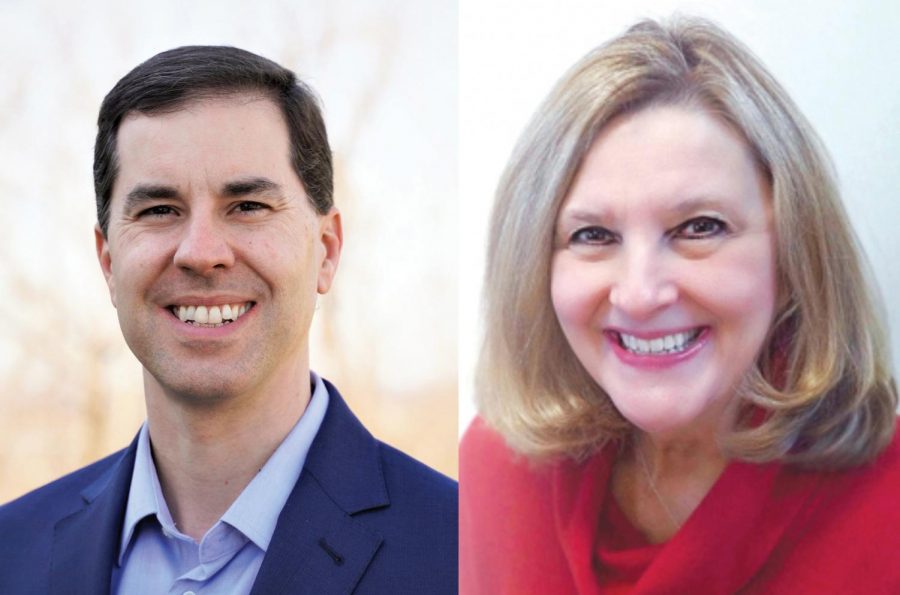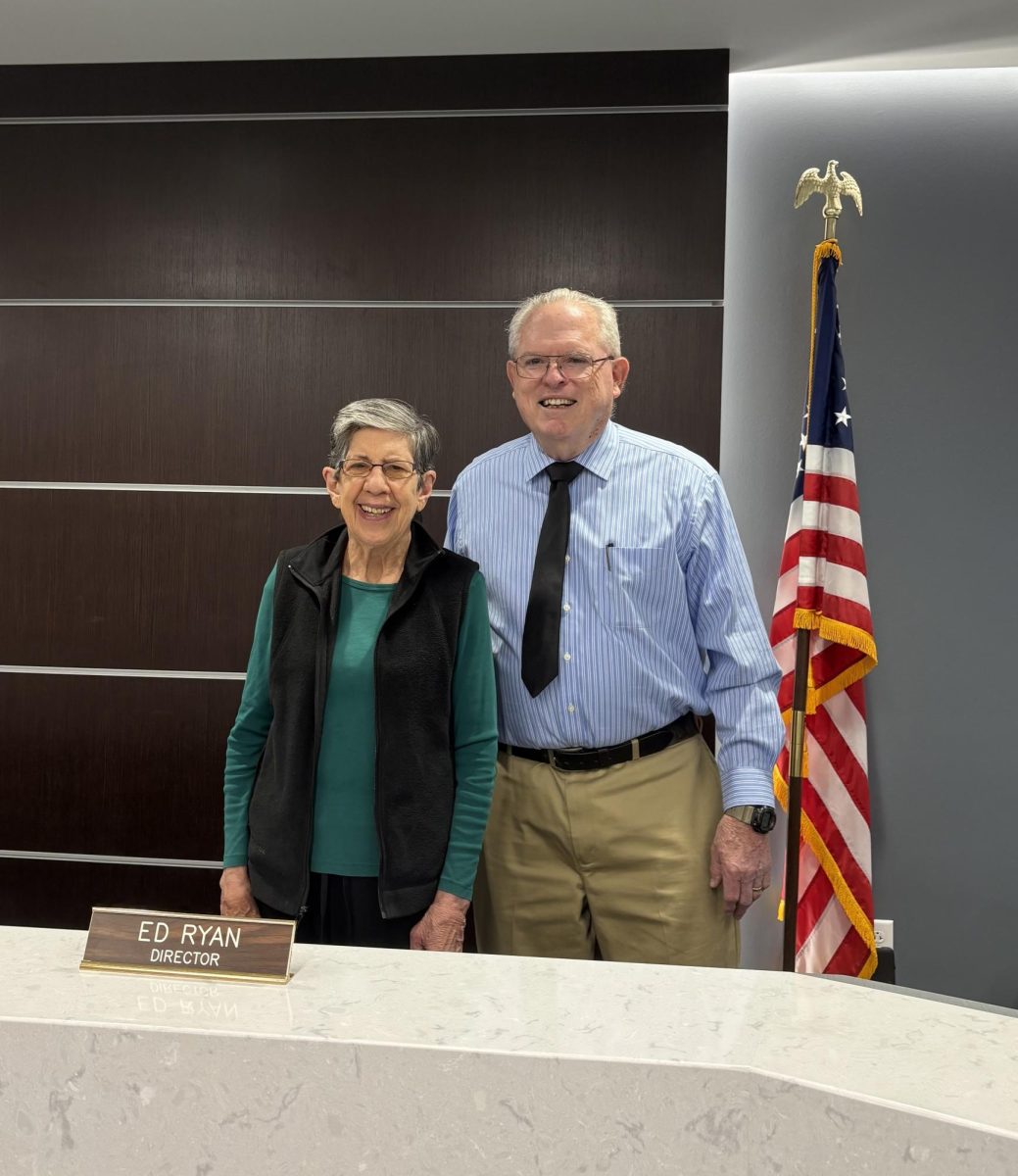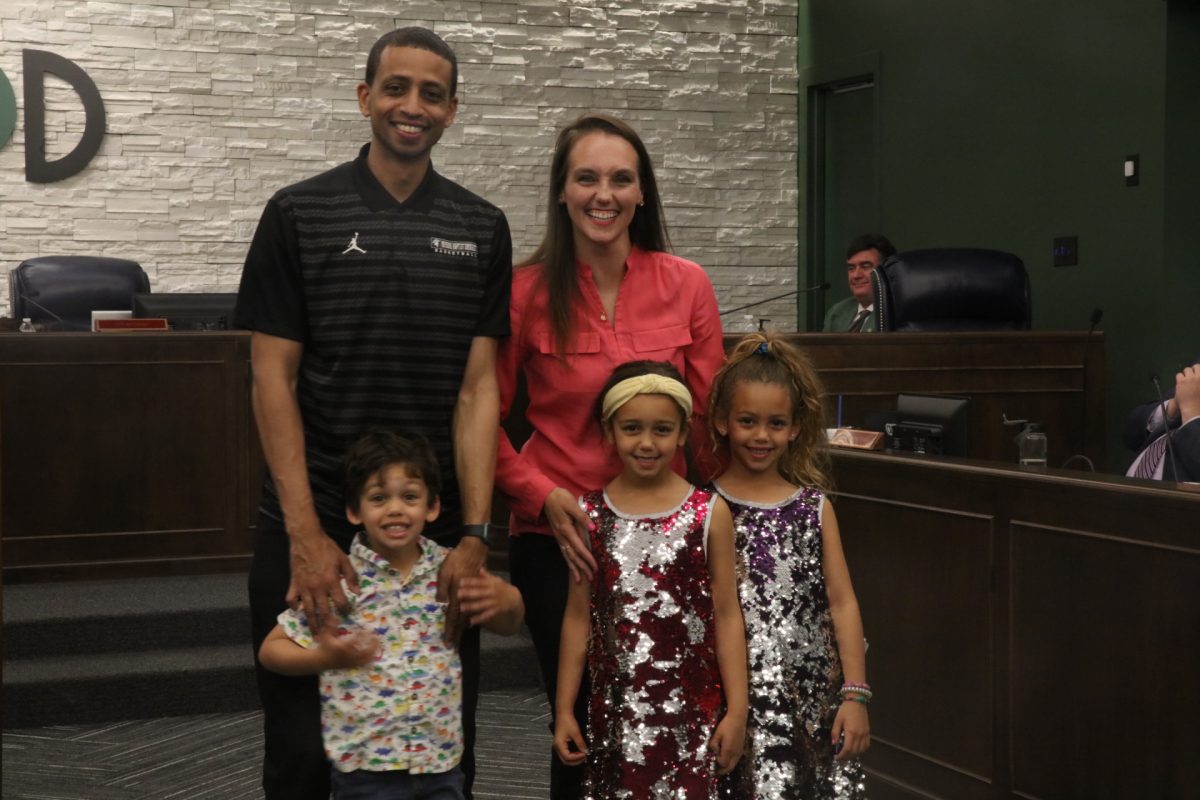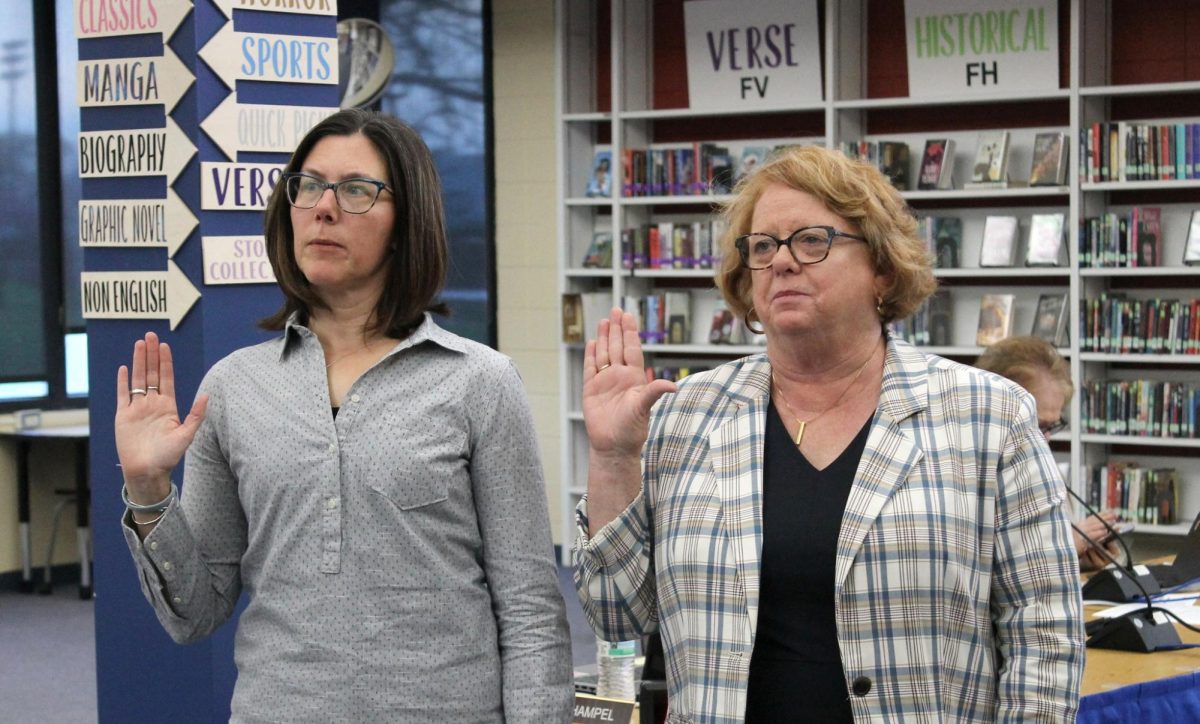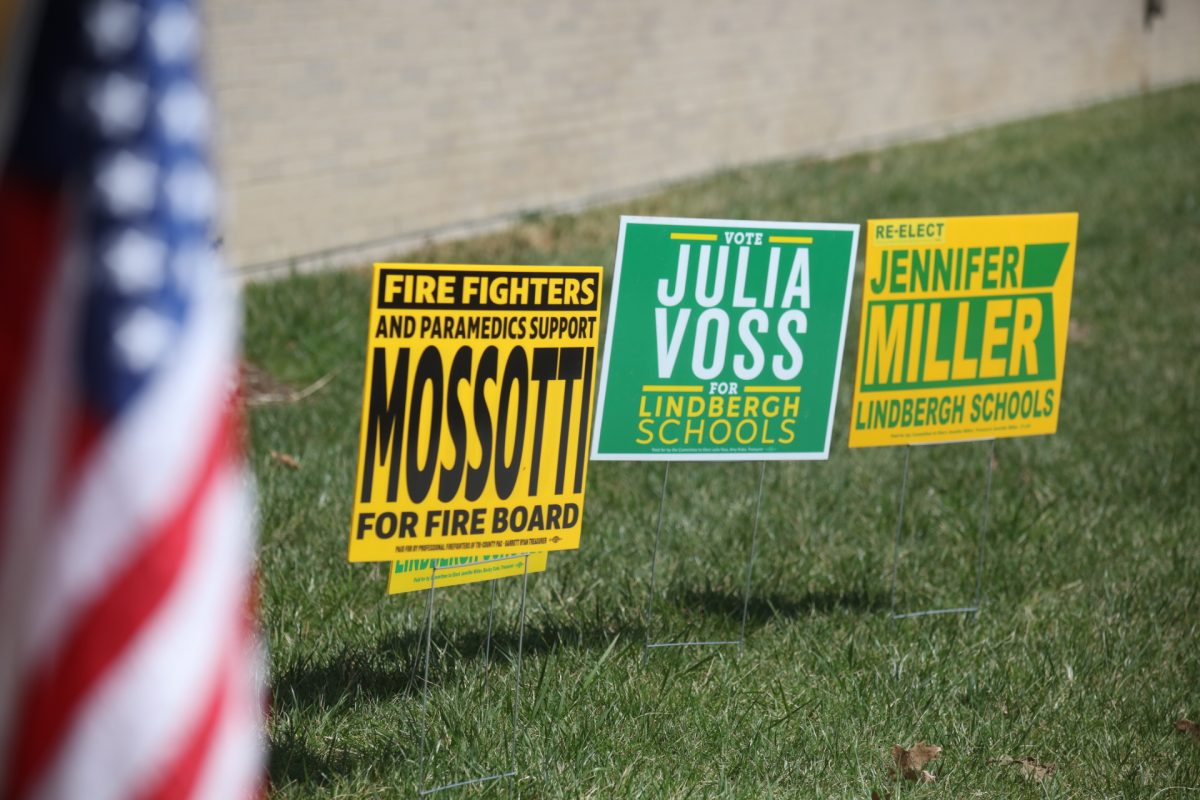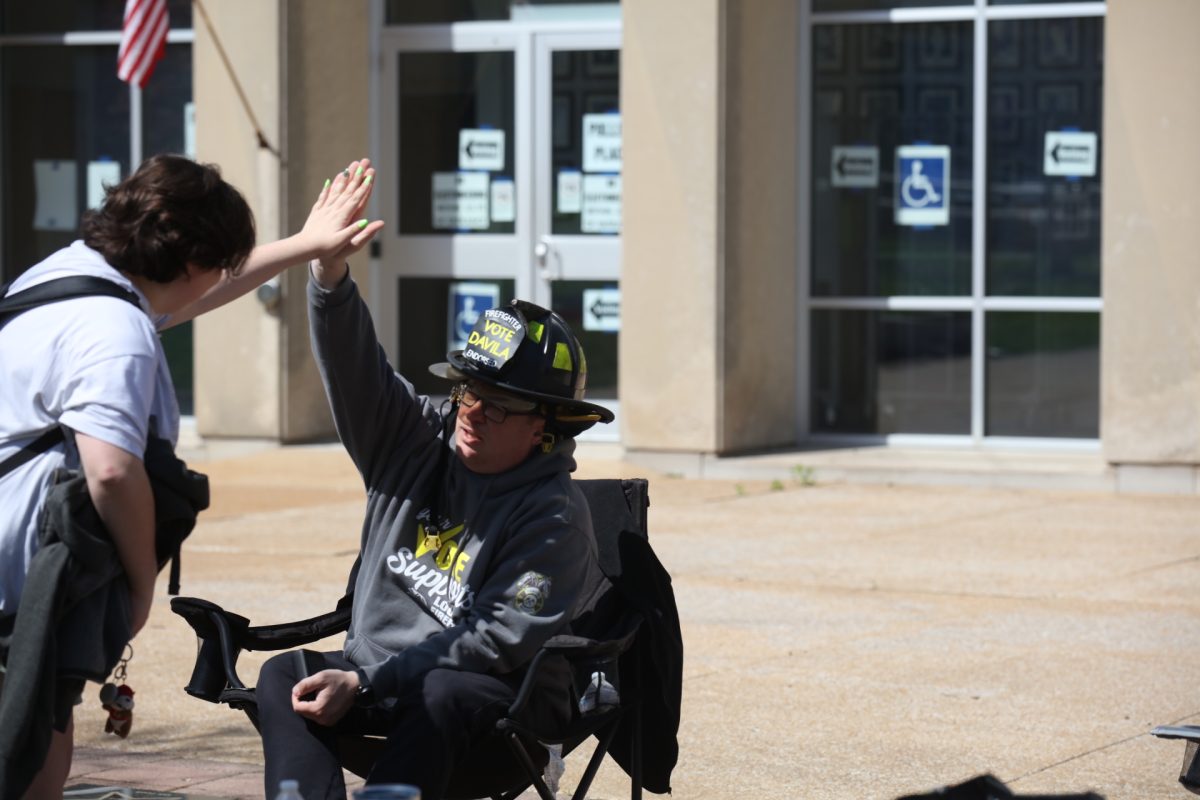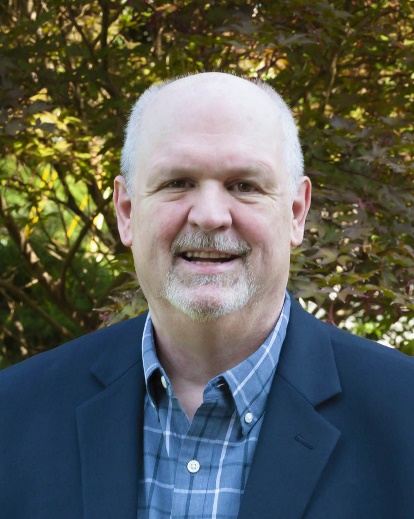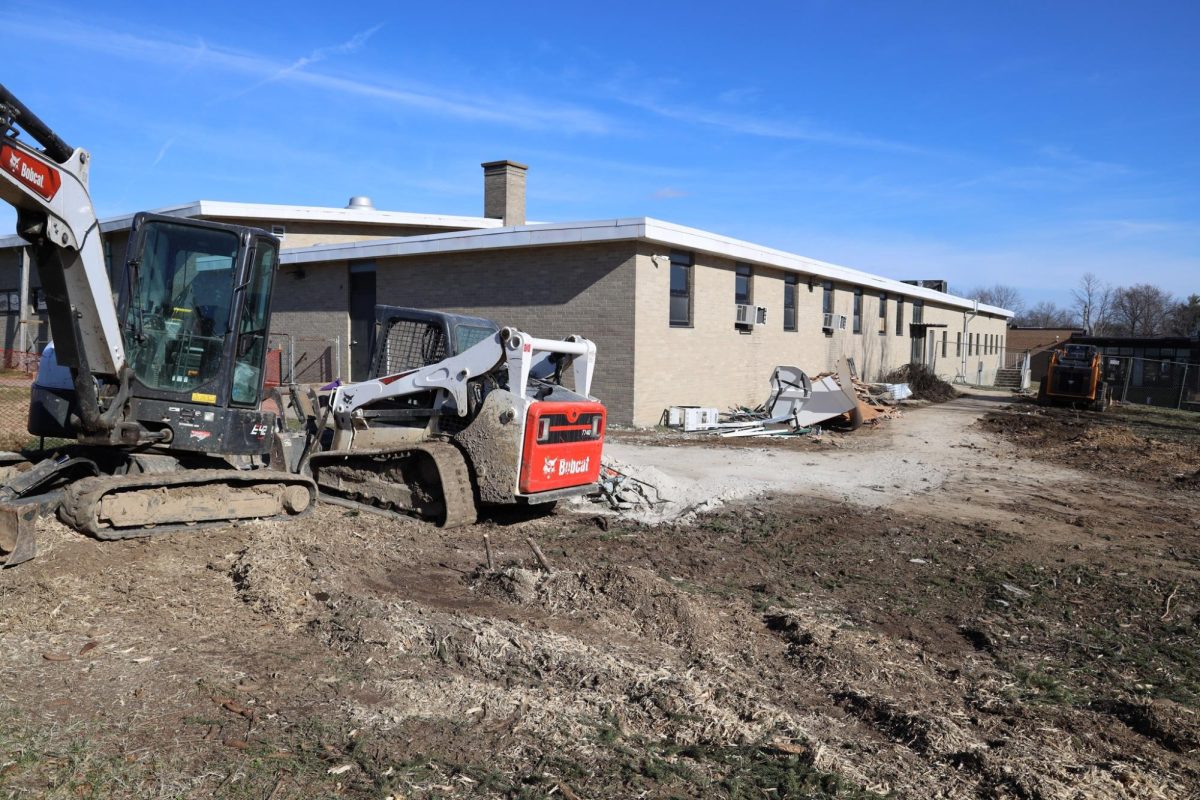Sunset Hills Mayor Pat Fribis will face political newcomer and resident John Stephens for her seat as mayor in the now postponed April 7 election. The election will be held June 2.
Fribis, 9843 Sunset Greens Drive, has been mayor of Sunset Hills since 2016. She is retired and married to Philip C. Denton. She has four children, Jon Fribis, Jennifer Botha, Jessica Kennedy and Julie Goodman, who all graduated from Lindbergh Schools, attended various colleges and are currently gainfully employed.
She is a retired business owner. Prior to her position as mayor, Fribis served as Sunset Hills Ward 4 alderman from 2008 to 2016.
When asked why she was seeking re-election, Fribis said, “I want to continue to serve the city with my experience and knowledge of the city. I have lived here over 40 years, and I want to continue to make Sunset Hills a wonderful place to live.”
Stephens, 43, 7 Kahlia Way Court, is a newcomer to public office. He and his wife, Gena, have two children who attend Sperreng Middle School and Concord Elementary.
Stephens, a physician, earned his undergraduate and master’s degrees in mechanical engineering at the University of Illinois and got his medical degree from St. Louis University, where he also did his radiology residency. He did a neuroradiology fellowship at Washington University in St. Louis.
He is a member of St. Justin Martyr Catholic Church, Catholic Youth Council, Sunnyhill Inc., Girl Scouts of Eastern Missouri, St. Louis Metropolitan Medical Society and the American College of Radiology.
When asked why he was running for mayor, Stephens said “(To) preserve the unique character of Sunset Hills and our place as a thriving city in which to live and raise families for generations to come. Prioritize residential input and participation. Make our city government more open and transparent. Stop proposed residential zoning changes and protect our property values. Promote responsible flood plain management. Attract residential-friendly commercial development. Promote fiscal responsibility.”
Fribis and Stephens gave the following responses to The Call’s questionnaire:
What do you consider the single most important issue in this race and why?
Fribis said, “Listening to residents has always been a priority for me. I have lived in Sunset Hills for more than 40 years, and I have raised my family with my four children going to Lindbergh Schools. Our city is a residential community that belongs to all of the residents. In order to generate the revenues needed to provide city services and keep our parks open without raising taxes, we need businesses to locate in our city and thrive.
“A balance must be reached between keeping our community residential but still have business tax revenues to provide our city with the necessary funding. The residents from the entire city have a stake in striking the correct balance. As mayor of the entire city, not just for a particular ward or neighborhood, I have to listen to the competing concerns, needs, benefits and welfare from all the residents.
“The mayoral race in Sunset Hills this year is about the mayor’s vision and duties toward the entire city, all four wards, all the residents, considering the present and future needs, concerns, goals and welfare of the city as a whole and not just for the benefit of a select few.
“The city’s Board of Aldermen members represent the residents of the four wards. The majority passes ordinances and resolutions. No single alderman or ward controls the rest of the city. This is the republican form of government. Every ward alderman is given identical opportunities to hear all the facts pertinent to decision making and are given identical opportunities to ask questions and discuss the issues. Divisiveness occurs when the minority will not respect the majority vote that constitutes the city’s position.”
Stephens said, “Two major issues go hand in hand: respecting residents’ input and ensuring city transparency. All of the major concerns in Sunset Hills in the past few years – zoning changes, misplaced cluster homes, the car wash, the rugby lease, flood plain development and blighting — have been exacerbated because public notification is at a bare minimum and the city does not adequately involve and sometimes excludes residents from decision-making. As mayor, I will ensure that residents receive appropriate notification of city business so they can participate in decision-making.”
Other issues you perceive in your race and your position on each:
Fribis said, “Flooding — For many years, our city, as most communities in the St. Louis area, followed the recommendations of the Army Corps of Engineers and allowed developments in the flood plain with a 1-foot rise over the base flood elevation. The rise was permitted, at the Army Corps of Engineers recommendation, to help bring down flood insurance rates in the area, and to provide a small margin of safety from the flood waters.
“Many of the homes and businesses were in fact built in the flood plain using these standards. Now, because of the apparent increased frequency and severity of the floods in the recent past, a change in these standards is needed. At a recent presentation by the Army Corps of Engineers hosted by the city of Sunset Hills, the Army Corps of Engineers still permits, and does not discourage, development in the flood plain. The Corps is now recommending a 2-foot rise on new developments.
“After study and discussions with the aldermen, residents and the Army Corps of Engineers, I have concluded that the existing standards need to be amended. I have proposed to the full Board of Aldermen that we adopt an ordinance requiring future developments in the flood plain to be constructed under a ‘no net fill-no rise’ standard. My proposal has been said by the city engineer and director of public works (Bryson Baker) to be the most restrictive in the St. Louis area.
“Prohibiting development in the flood plain is not being recommended because of the likely challenges in court of unconstitutional regulatory taking of private property, exposing our city to potentially devastating monetary damage lawsuit awards. We are also looking to pass flood mitigation and safety measures recently recommended by the Army Corps of Engineers.
“Zoning — The city’s comprehensive plan requires a periodic review of our zoning laws to update and clarify the current standards and visions of the city. That is in the process now. Proposals by the experts for zoning changes have been made. The commercial zoning change proposals have received few objections and comment. The residential zoning change proposals has resulted in concerns by many.
“I, as the mayor, and the Board of Aldermen shared those concerns. The residential zoning change proposals reducing the number of residential zoning districts and lot sizes was voted down unanimously in November of 2019. No residential rezoning has taken place. Except eliminating the non-urban classification and placing our city parks in their own zoning district, I am opposed to any other substantial zoning changes, and I will exercise my veto power if necessary.
“As to cluster homes which has been in our zoning code for many years, and before I was elected to office, only two such developments exist in our city that were completed many years ago. The two are Sunset Grove and The Courtyards developments. I prefer to refer to cluster homes as luxury villas because the people living in these two developments in Sunset Hills do not consider themselves as living in cluster homes, so there is some confusion in the definition or perception.
Stephens said, “Zoning revision – The proposed zoning code revision was conducted for two years at the current mayor’s direction by an out-of town, Chicago consultant at a cost of $125,000, with essentially no public input. The result was predictable — a code that was out of sync with homeowners’ desire to maintain the residential character of Sunset Hills and its property values.
“Appropriate zoning protects residents’ investment in their homes. Additionally, the cost of revising the proposed code, a six- to nine-month process, was avoidable. The mismanagement of this project has needlessly cost Sunset Hills residents. By contrast, the process Crestwood is using to rewrite its zoning codes began with appropriate residential input, including well-publicized town hall meetings, and the process has remained at the Planning and Zoning level for over one year.
“Flood-plain development — Three major floods and many flash flood events have affected residents since 2015 and the city has made no coordinated effort to address flooding. The current mayor approved 57,000 cubic yards of fill material in the floodplain without any public input, and residents were rightfully outraged. The city also agreed to lease the rugby complex to be built in a flood plain, with no fill restrictions until there was public outcry.
“Bander Park — The public was promised that decisions would not be made until residents’ opinions were obtained through a citywide survey. When residents attended the survey results meeting to gather their input, they were surprised and disappointed to find that there would be no discussion for a large parcel of the property because the mayor and board had preemptively leased 22 acres of this public land to a private entity for 50 years.
“Rugby lease – I know of no one who objects to rugby or the St. Louis Bombers Rugby Club. Unfortunately, the city placed the lease on the agenda on a Friday and signed a 50-year lease the next Tuesday with no residential review, no conditions on usage, and no study of the impact on the surrounding community. Many residents felt the terms were unfavorable for the city. The Tuesday meeting was previously titled ‘work session’ and held on a date when city business is typically not executed. Many residents were appalled that the mayor leased public land to an outside entity before consulting with residents. As mayor, I would have consulted with residents first and would not sign a lease that residents felt was unfavorable for the city.
“Public notice and transparency – Residents deserve more timely notice of proposals through the newsletter, email and social media. The mayor has the bully pulpit and has the best platform to reach out to residents. I have a track record of sharing information and connecting residents. I founded the 1,000-member Facebook group, Sunset Hills Neighbors, without any assistance from the city. The purpose of this group is to connect residents, promote community, share information and ideas, enhance safety/security, and facilitate civic participation. What has the city done to involve and connect residents in the last four years?”
Should the mayor strictly adhere to Robert’s Rules of Order during meetings? Should the public be allowed to speak?
Fribis said, “Yes. The mayor and the members of the Board of Aldermen should strictly adhere to the Robert’s Rules of Order. Our city ordinance requires that all the elected officials adhere to Robert’s Rules of Order. An alderman violates the Robert’s Rules of Order when he or she talks without being recognized to speak by the mayor and when the alderman interrupts another alderman who is speaking or by interrupting and arguing with a speaker during public comment.
“Allowing public comment is an integral part of our meetings. We also invite and encourage the public to email us, send letters, telephone us or even set up appointments to speak to us in person at City Hall. We have made ourselves available to all forms of communication. We have been a transparent city with a website to inform our residents of what is going on in the city. We also have a monthly newsletter sent to all homes and businesses.”
Stephens said, “Residents are the city of Sunset Hills. Without their input the city would suffer, so their participation is essential. Residents need more timely notification of agenda items to prepare their input. The several days’ notice that the city adheres to is insufficient.
“The mayor should conduct meetings in a manner that encourages residents’ input and disallows any inappropriate behavior by either board members or residents.”
In your opinion has the Board of Aldermen and other city officials complied fully with the Sunshine Law? What will you do as an elected official to ensure compliance with the Sunshine Law?
Fribis said, “Yes. The city attorney (Robert E. Jones) guides us carefully on fulfilling our obligations under the Sunshine Law. The Sunshine Law obligations are discussed often in closed sessions and everyone is aware of their duties under the law. Everyone knows that conversations in closed sessions are confidential under the law. I copy all aldermen, the city administrator (Eric Sherman) and the city attorney on all emails, and I do not have meetings without a quorum.
“The city of Sunset Hills is one of the most transparent cities in the St. Louis area with their residents. We have a specific ordinance requiring transparency. How are we transparent? We maintain a website that posts all meetings and agendas with exhibits attached. Our website also has a calendar to easily notify the public of what meetings are being held on what date and time. We allow the public under the Sunshine Law to obtain copies of any public document that qualifies for disclosure. Our website also posts many public documents.
“We send out a monthly newsletter, called the Horizon, with information about the city, events, meetings, et cetera. All of our elected officials and employees are available to answer questions by the public, and do so on a daily basis. The mayor’s and aldermen’s telephone numbers and email addresses are published so that anyone can telephone us or email with questions and concerns. Anyone can come to City Hall and talk to someone about concerns or questions. Many residents take advantage of our openness. We are transparent and easily available by multiple avenues to address questions or concerns.”
Stephens said, “Yes, but residents have to request public documents too often because the city does not adequately inform them of its deliberations.
“As mayor, I will comply with not only the letter of the Sunshine Law, but the spirit as well through openness and transparency.”
Should the city charge for Sunshine Law requests?
Fribis said, “As I have stated previously, I have looked into the costs for Sunshine Law requests, and I have been told that we would need to hire a new employee if we allowed all requests to be free of charge. So, I feel it is fair and reasonable to charge a nominal fee for Sunshine Law requests in order to be prudent and fulfill my obligations to the city to protect our financial resources while balancing our obligations under the Sunshine Law.”
Stephens said, “Extraordinary requests, or requests from non-residents, should incur a reasonable fee to cover the city’s costs.”
What is your position on the use of tax-increment financing and other tax tools?
Fribis said, “The city has used tax-increment financing in the past on a few developments. But at the present time with pending proposed projects, I do not feel a need for tax-increment financing or use of other tax tools.”
Stephens said, “These methods should be used sparingly, only when needed and only in a way that benefits the city and protects residents.”
What do you think of aldermen attending meetings by videoconferencing?
Fribis said, “The city has an ordinance on videoconferencing. Only if a true emergency or illness requires the use of videoconferencing will I approve of it. It cannot be used as a regular way to attend meetings, and I discourage its use since the residents deserve the full attention and personal appearance of their elected alderman. I have scheduled all of my appointments and out of town trips to personally attend all of the meetings as mayor.”
Stephens said, “I am not in favor of that practice unless the circumstances are extraordinary.”
Do you support the use of eminent domain for redevelopment projects? Why or why not? Please be specific.
Fribis said, “Eminent domain should only be used with the most compelling and necessary projects for the benefit of public works for the city, but not for commercial developers.”
Stephens said, “These methods should be used sparingly, only when needed and only in a way that benefits the city and protects residents.”
Do you agree with the direction the city is moving under Mayor Pat Fribis?
Stephens said, “No, I do not. Many residents are dissatisfied by the city’s minimal communication on important issues, which impedes residential involvement and creates distrust. Specifically, residents have been dissatisfied with the city’s conduct regarding zoning changes, cluster homes, the car wash, flood-plain development, the rugby lease and the blighting ordinance. Residents deserve a government that is more open and transparent.”
How is the city a better place since you have been mayor?
Fribis said, “I feel that Sunset Hills is a better community since I have been mayor these past four years for many reasons, including:
“I have fought to keep the Court Drive residential property from becoming commercial, and the city is presently defending vigorously a lawsuit filed by a developer to change the property to commercial.
“Under my leadership, I listened to residents, and soon after I took office as mayor, the city instituted actions revoking the business license of the Econo Lodge. The numerous police reports from calls to the Econo Lodge documented some of the worst crimes and behavior imaginable. The city could not tolerate what was going on there so close to nearby neighborhoods and streets. The Econo Lodge is now gone.
“I listened to residents and required the developer of the Tidal Wave, Kaldi’s Coffee and Smoothie King at East Watson and Lindbergh to improve the intersection with approval of MoDOT (Missouri Department of Transportation) at the developer’s cost.
“At my request, the city Police Department has instituted programs including Coffee with a Cop, a fishing derby and baseball cards for kids.
“Mr. and Mrs. Rich Stieren, residents of Sunset Hills, donated money for a tugboat playground, liberty bell and pavilion by the ball fields of West Watson Road. The city has put in place all of these projects in a new playground for kids.
“I have worked with the Sunset Hills Historical Society and members of the Route 66 Association of Missouri to acquire, at no cost to the city, a historic neon Park Plaza sign, and I have secured a generous sponsorship and donation by Mr. Al Moore of Sunset Hills to pay the cost of restoration and eventual re-erecting of the sign. This project will promote, preserve and honor Sunset Hills’ history as part of the Route 66 highway system. Many tourists are predicted to frequent our city to view the neon sign once the project is completed.
“I formed the Art Committee, which is responsible for the statues in the Watson Trail Park and in front of the Community Center. Through this committee, the city hosts a Maker’s Market to generate more funds for further art acquisitions. The Maker’s Mart is a wonderful place to view and purchase art made by local artists.
“I created and put in place through the parks department the annual Route 66 Bike Cruise, also known as ‘Get your kicks, biking Route 66.’ The event brings recognition to Sunset Hills’ historic past with Route 66. This event is well attended and generates a lot of publicity for our city. Many cities are envious of our event.
“I coordinated the acquisition of the Bander property that holds great potential for the future benefit and enjoyment of all of our residents.
“After the tragic traffic accident at West Watson Road and Gravois Road several years ago, I aggressively led the effort to put a no-left-turn sign for traffic going east during the morning rush hour to prevent left turns onto West Watson Road. I have discussed the traffic issues with the Sunset Hills police chief in the past several years, who has studied the issues, and the police chief proposed several additional options the city could do at the intersection, including the placement of a no U-turn sign east of the intersection to further promote traffic safety. The Board of Aldermen approved the placement of the sign. Other options to improve traffic safety are being discussed as well, including a traffic study of the Gravois corridor from Interstate 270 to the West Watson Road intersection.
“I have tried to bring peace and tranquility to our city government. I have repeatedly urged our aldermen to respect each others opinions even if they disagree with them. The decorum of the meetings have dramatically improved since I became mayor.
“Under my leadership, the city received a federal grant to resurface and add sidewalks on West Watson Road between Gravois and Weber Hill Road.
“As an alderman, I initiated connectivity by adding a sidewalk priority plan and adding a line item to budget money for sidewalks each year. As mayor, we continue to do so.
“I worked on the Special Projects Committee to acquire the red granite from the historic Watson Road Bridge. The granite is now on city property to be recycled and used on future signage.
“Under my leadership, Sunset Hills received grants for restrooms in Gempp, Minnie Ha Ha and Lynstone parks.
“I was mayor during the catastrophic flood of 2017. My family and I sandbagged and led the city through recovery and SEMA (State Emergency Management Agency) reimbursements. For the future we are looking for ideas and help to alleviate the flooding to residential and commercial properties.
“As alderman of Ward 4, while chairwoman of the Finance Committee, I pushed for the creation of the city administrator position. As mayor, I oversaw the interview process for the first city administrator and recommended the hiring of Eric Sterman for the position. The city administrator has achieved the goals of running the city more efficiently with substantial economic savings.
“Under my leadership, we have brought in many new businesses, including: Subaru of St. Louis, Drive Centric, Comfort Suites, Specialty Carts expansion, Sunset Transportation, Clementines Boutique, Divine Salon, Tidal Wave carwash, Kaldi’s Coffee, Smoothie King, La Quinta Suites and others.”
What is your vision for the city of Sunset Hills?
Fribis said, “A primarily residential community that is peaceful and non-divisive, where the residents of the entire city share the same goals and visions, where all of our residents’ concerns are treated equally, where we can all enjoy what has become a beautiful and desirable place to live. To continue to provide an enhanced quality of life, from the young children to our elder residents. We have beautiful parks and recreational facilities that we should continue to support, to continue to provide playgrounds for our youngsters, and sport fields for our athletes. To recognize and preserve our area’s green space, history and heritage. We can do this if we continue to work together.”
Stephens said, “Residents have chosen this beautiful city to invest in property, raise our families and enjoy community. I’ve knocked on over 1,000 doors and met many people that I am proud to call neighbors. Our residents are our greatest asset and have a tremendous collective wisdom that we should value. My priorities are fostering residents’ involvement, ensuring city transparency and fiscal responsibility, stopping proposed residential zoning changes, strengthening the city’s flood-plain policies and encouraging smart, residential-friendly business development. If the city puts residents first, it will succeed.”
Is the city of Sunset Hills business friendly? What do you propose to keep current businesses in the city and attract new economic development?
Fribis said, “Our city’s focus is the residents that own the city. We welcome businesses that meet our residents’ needs and help keep our taxes as low as possible. Business taxes help finance our city services and beautiful parks. Businesses wanting to do business in Sunset Hills must comply with all of our laws and regulations. We encourage our residents to patronize our local businesses when possible. We are responsive to our businesses’ questions and concerns. We are blessed with the number of businesses that want to locate in our city.”
Stephens said, “Some businesses have had difficulty with projects in the city. The city could be more attractive to businesses by involving residents upfront to learn their concerns and thereby lessen controversy. The mayor needs to have strong credibility with residents to successfully broker new business.”
Should the city of Sunset Hills be more bicycle friendly? If so, what would you propose?
Fribis said, “Yes. I want to start a committee task force to study the issue and come up with ideas and suggestions to enhance the bicycle friendly image of our city.”
Stephens said, “Yes, a robust trail system would produce positive economic benefit for the city.”
Would you consider it unethical to tape record someone without their knowledge? Please elaborate.
Fribis said, “The term unethical is a hard word to define. Many organizations and professions will specifically write rules to specifically identify and define what conduct is ‘unethical.’ Of course, there are moral rules that identify conduct that is per se unethical. Unfortunately, we do not have any written rules on recording private conversations except as provided by our laws. Missouri’s wiretapping law (RSMO 542.402) does not permit recording a telephone call without the consent of at least one person on the call. Not only would violation of this state statute be unethical it would also constitute a crime.
“Violations of the Missouri Sunshine Law provisions could be considered unlawful and unethical. In the civil law, some invasions of one’s privacy are considered a violation of civil law and some would consider this unethical. If someone records your conversation in your home, where you have an expectation of privacy, then I would consider this unethical under my personal beliefs, and an invasion of one’s privacy. If your conversation in a public place is recorded where non-private public matters are discussed, this may be lawful conduct, but still, it is not behavior that I would encourage or subscribe to. To say that it is unethical or not, absent a written rule, is subject to each person’s own personal moral code and sense of what is right or wrong.”
Stephens said, “I would not record anyone without their knowledge and I consider it unethical to do so.”
Are you satisfied with the performance of City Attorney and City Prosecutor Robert E. Jones?
Fribis said, “In part yes. There is always room for improvement. I want the city attorney to educate the elected officials more on the legal issues and legal consequences.”
Stephens said, “I have agreed with some of his opinions and disagreed with others. I do favor separating the roles of city attorney and city prosecutor, which is a best practice according to the Missouri Bar Association. It is also important that the board and mayor not abdicate their responsibilities to the city attorney.”
What are your thoughts on commercial encroachment of residential areas?
Fribis said, “I am not in favor of commercial encroachment of residential areas. Two different zoning districts should remain separate. I opposed the Court Drive rezoning attempt.”
Stephens said, “Sunset Hills has a lot of commercial real estate bordering residential areas. We should strive to mitigate encroachment as much as possible. Residents deserve special attention during the development process, and the mayor needs credibility with both sides to broker solutions.”
Should the Court Drive neighborhood bordering South Lindbergh Boulevard be residential or commercial? What about attached villas?
Fribis said, “Residential. I supported the effort to keep it residential, and the city is currently defending a lawsuit against it by the developer trying to rezone the land commercial. Attached villas would be suitable so long as they conformed to existing zoning laws and were acceptable by the residents.”
Stephens said, “I’ve spoken with many of the stakeholders and I favor a residential solution for Court Drive. I believe the demand exists for single-family or attached homes. I am hoping the legal matters are resolved soon so that everyone can move forward.”
What should the city do to help residents impacted by flooding?
Fribis said, “The city stands by the residents to lend any help they can, such as sandbagging, cleanup, et cetera. We will assist in applying for any financial relief provided by FEMA (Federal Emergency Management Agency) and SEMA.
In addition, for many years, our city, as most communities in the St. Louis area, followed the recommendations of the Army Corp of Engineers and allowed developments in the flood plain with a 1-foot rise over the base flood elevation. The rise was permitted, at the Army Corp of Engineers recommendation, to help bring down flood insurance rates in the area, and to provide a small margin of safety from the flood waters. Many of the homes and businesses were in fact built in the flood plain using these standards.
“Now, because of the apparent increased frequency and severity of the floods in the recent past, a change in these standards is needed. At the recent presentation by the Army Corps of Engineers hosted by the city of Sunset Hills, the Army Corps of Engineers still permits, and does not discourage, development in the flood plain. The Corps is now recommending a 2-foot rise on new developments. After study and discussions with the aldermen, residents and the Army Corp of Engineers, I have concluded that the existing standards need to be amended.
“I have proposed to the full Board of Aldermen that we adopt an ordinance requiring future developments in the flood plain to be constructed under a ‘no net fill-no rise’ standard. My proposal has been said by the city engineer and director of public works to be the most restrictive in the St Louis area. Prohibiting development in the flood plain is not being recommended because of the likely challenges in court of unconstitutional regulatory taking of private property, exposing our city to potentially devastating monetary damage lawsuit awards. We are also looking to pass flood mitigation and safety measures recently recommended by the Army Corp of Engineers.”
Stephens said, “The city needs to review its flood-plain policies, follow the recommendations of the U.S. Army Corps of Engineers, work with our neighboring municipalities and involve residents in the process. The Winter Brothers project is an example of what the city should not do. The city should not have approved 57,000 cubic yards of fill without public input.”
Do you feel that town home or “cluster home” developments have a place in the city? Why/why not?
Fribis said, “As to cluster homes which has been in our zoning code for many years, and before I was elected to office, only two such developments exist in our city that were completed many years ago. The two are Sunset Grove and The Courtyards developments . I prefer to refer to cluster homes as luxury villas because the people living in these two developments in Sunset Hills do not consider themselves as living in cluster homes so there is some confusion in the definition or perception. The homes in these two developments are beautiful and high end. They increase property values in our city. They provide our city’s elderly retired residents a chance to remain in Sunset Hills but without the concerns of doing yard work and exterior home maintenance. I know that ‘cluster homes’ are not liked by some residents and oppose cluster home developments. The current city comprehensive plan restricts cluster homes to transitional areas only. Some residents want to stick to that. Some residents like cluster homes like those in our city now. (Sunset Grove and The Courtyards). I am listening to all the residents. Although the “no residential zoning” movement wanted no residential zoning, which the Board members were of similar opinion on, the movement has also advocated for residential rezoning by eliminating ‘cluster homes’ and planned development. Before we start eliminating provisions in our ordinances that we have worked under for many years to the satisfaction of most, I think it would be prudent to address these additional issues in a town hall meeting to discuss the issues at length with the residents from all sides of the argument, elected officials, and experts.”
Stephens said, “Yes, but only in specified areas with a high standard of development. I support the many residents that I’ve spoken with who would like to downsize and remain in Sunset Hills. Other cities specify in their zoning code appropriate areas for attached homes, usually transitional areas. I am opposed to attached homes in areas inconsistent with the character of the area, so-called spot rezoning.”
Should the city’s Police Department be retained or should police services be outsourced?
Fribis said, “Our city is blessed with an outstanding Police Department. I believe our residents want to maintain the services we have become accustomed to with our current police department.”
Stephens said, “Absolutely yes. The Sunset Hills Police Department should be retained. Our police department is highly regarded and appreciated by residents. Local control of the police department by the city is essential to the welfare of our city.”
Traditionally, Sunset Hills has had a close relationship with Lindbergh Schools. Do you believe the city should maintain a positive relationship with the school district?
Fribis said, “Absolutely. Lindbergh Schools continues to be a valuable asset to our city by being a top performing school district for many years. Our property values go up with having a highly desirable school district in our city. I have served on many committees in the Lindbergh School District and was given the Lindbergh Leader award. All four of my children attended and graduated from Lindbergh Schools. Their great education with Lindbergh catapulted them to successful college and master’s degrees and successful careers. We need to continually urge and work with the district so that the needs of all students are met. (Literacy for Lindbergh).”
Stephens said, “Absolutely, yes. The city should strive for a symbiotic relationship with Lindbergh Schools which fosters each other’s success. As a Lindbergh school parent, I fully appreciate what the district does for our children and all of our community.”
Should the city collaborate with Lindbergh Schools when undertaking a development that would impact the school district?
Fribis said, “Yes. Our relationship with Lindbergh School District is important. I would promote meeting with the district to hear and consider their concerns with projects that impact the district. I am one to encourage listening and learning together to encourage the best options for the city and the school district.”
Stephens said, “Yes, the city should openly dialogue with the district on any such project.”
Do you support the performance of City Administrator Eric Sterman?
Fribis said, “Yes. Mr. Sterman has performed exceptionally well in the administration of the city. He deserves a lot of credit.”
Stephens said, “Yes. His work has been a welcome addition to the management of the city.”
Do you support the city’s switch to a city-administrator form of government?
Fribis said, “Yes. I pushed the adoption of the city-administrator form of government while chairwoman of the Finance Committee as an alderman. It has been successful in Sunset Hills.”
Stephens said, “Yes, a city with our size and budget should have a professional administrator who receives appropriate guidance and supervision from the mayor and board.”
What do you think of the city leasing part of Bander Park for a rugby field?
Fribis said, “First of all, the lease did not contain any park land. Our city received the property from Dr. (Steven) Bander, and only the driving range was made into a city park. The remainder of the land was not made into a park. Therefore, it still is only undesignated property known as Bander ‘property.’ Contrary to misinformation disseminated by a few opponents to rugby, the city of Sunset Hills, a fourth-class city under Section 79.010 (RsMo.), has the statutory power to sell or lease real property. Park property was not leased, since only the driving ranges were made into a park.
“Furthermore, the idea that the city can put up for voter approval ballot proposals, known as propositions, when the city sells or leases city property is wrong under Missouri law. Currently, the state of Missouri has not given the legal authority to cities of the fourth class, such as Sunset Hills, to hold proposition ballot measures. Our city only acts through the legal authority delegated to us through Missouri statutes. We were not given legal authority to hold ballot measures, such as propositions.
“It should be pointed out that the mayor can only vote on a resolution or bill if the Board of Aldermen vote results in a tie. The resolution on the rugby field lease was approved by a majority vote of the board. I did not vote. The vote was held after the rugby lease was discussed for many months at Board of Aldermen meetings. Most if not all aldermen were in favor of the rugby proposals at the time of the vote.
“We had basically acquired 120 acres of a former golf course. The aldermen knew when they unanimously voted to approve acceptance of the donation of property that the budget could not accommodate turning the entire area into a park. Everyone agreed to make the driving ranges a park since the income generated at the driving range will in essence pay for the costs associated with maintaining the driving range. Everyone agreed to let the remaining property go wild until money was available to make major improvements. Leasing approximately 22 acres of land that chronically floods decreased the burden of maintenance on the city and would bring in an access road, electrical and other improvements at no cost to the city. We were transparent and followed the law on giving notice of the discussions and vote on the rugby lease.
“Finally, as mayor, after listening to the residents, I demanded under threat of a veto, several amendments to the rugby development including: 1. A no-rise, no-net fill condition that has to be certified by an appropriate engineer. 2. The development will have no effect on flooding, including no increase in the volume, frequency or severity. Water storage capacity of the property shall remain neutral. 3. No PA system. 4. No alcohol sales after 10 p.m. or two hours after the last game, or whatever is the earliest. 5. No subleasing. 6. A traffic study, at the Bombers’ expense, must be done that demonstrates no substantial increase in traffic. 7. The city officials or their employees shall have the right to enter the property at any time without prior notice. 8. No right turn after exiting onto West Watson Road except local traffic.
The board unanimously approved my offered amendments.”
Stephens said, “A 50-year lease was added to the board’s agenda on a Friday and passed on the following Tuesday without allowing adequate time for study. As mayor, I would have consulted with residents first. If residents had been given the chance to review the lease, they would have pointed out many concerns. The lease of public land should have public input. Unfortunately, the resident survey was performed after the lease was signed.”
What do you think of Days Inn owner HR Sheevam’s proposal with Helen’s to build a hotel/parking garage with tax incentives? Should the city have increased its height limit for hotels?
Fribis said, “I have previously stated when I first ran for mayor that tax incentives should be rarely used and in only the most compelling circumstances. I do not feel that there are currently any blighted areas in Sunset Hills to warrant tax abatements. The burden of proof and onus is on the developer to prove convincingly that a blighted area exists that is endangering the public welfare to warrant any tax abatement.
“As to hotel height limits of 4 to 5 stories, depending on distance from residential areas, the board enacted this several years ago. It was an increase of one story, but only if it is a certain distance from residential areas. Mr. Sheevam’s new hotel that is being built will be 5 stories. I would adamantly oppose any further increase in hotel heights in our city.”
Stephens said, “Such incentives should be used sparingly and only when they benefit the city. Any decision that alters our tax base and would affect the city, school district, and fire district should be carefully reviewed. The city should not increase the height limit for hotels if it adversely affects residents.”
Should Sunset Hills fight any efforts by St. Louis County to regulate police departments and other city business?
Fribis said, “Yes, and we have fought St Louis County on regulating our police department in the past, and we prevailed in the lawsuit.”
Stephens said, “Any proposal should be vetted by residents and the Board of Aldermen to determine suitability for Sunset Hills.”
Some residents of the greater St. Louis region advocate for a city-county merger, a disincorporation of St. Louis County municipalities or, as proposed by Better Together, a regional merger of services such as police and/or fire districts. Do you support these efforts? Why or why not?
Fribis said, “No. Better NOT Together is how I voiced by opposition to any type of merger. I gathered signatures on petitions to support the Freeholder effort to oppose the merger. Any merger will bring nothing to Sunset Hills and will jeopardize our parks and city services and high caliber police department.”
Stephens said, “No, I do not support a city-county merger and I would fight any attempt to disincorporate our city because services, amenities and our property values would suffer.”
Do you believe the city is in a strong financial position?
Fribis said, “Yes, very much so. We have always balanced our budget, and the city has experienced large surpluses most years. We have a multimillion reserve fund built up. We had a temporary very small budget deficit (less than 1 percent) as a result of a drop in tax revenues when Toys ‘R’ Us and Johnny Mac’s closed, but with a few budget adjustments the budget has been brought back in line. We will again experience large revenue surpluses when the new car dealership, Tidal Wave, Kaldi’s Coffee, Smoothie King, new hotels and a few other businesses are completed. The very near budget future looks very bright financially.
“However, since Tapawingo Manors’ trustees of the Tapawingo development have recently made an application to the city to take over their private streets that are currently below city standards, the city will have to spend more than several million dollars to get the Tapawingo private streets up to city standards. The Tapawingo takeover will have a devastating impact on the city budget, and very likely result in severe budget cuts and reduction in city services, closure of city parks and perhaps other effects.”
Stephens said, “We are fortunate to have a favorable location that attracts businesses. We have a balanced budget and more than adequate reserves. However, the gradual erosion of our business tax base presents a long-term concern. We need to aggressively recruit commercial businesses that are desirable and will benefit our residents while controlling our expenses.”
The city’s zoning code is currently being rewritten. How would you change it?
Fribis said, “The City’s Comprehensive Plan requires a periodic review of our zoning laws to update and clarify the current standards and visions of the city. That review process is now occurring. Proposals by the experts for zoning changes have been made. The commercial zoning change proposals have received few objections and comment. The residential zoning change proposals has resulted in concerns by many. I, as the Mayor, and the Board of Alderman shared those concerns. The residential zoning change proposals reducing the number of residential zoning districts and lot sizes was voted down unanimously in November of 2019. No residential rezoning has taken place. Except eliminating the non-urban classification and placing our City parks in their own separate zoning district, I am opposed to any other substantial residential zoning changes and I will exercise my veto power if necessary.
As to cluster homes which has been in our zoning code for many years, and before I was elected to office, only two such developments exist in our city that were completed many years ago. The two are Sunset Grove and The Courtyards developments . I prefer to refer to cluster homes as luxury villas because the people living in these two developments in Sunset Hills do not consider themselves as living in cluster homes so there is some confusion in the definition or perception. The homes in these two developments are beautiful and high end. They increase property values in our city. They provide our city’s elderly retired residents a chance to remain in Sunset Hills but without the concerns of doing yard work and exterior home maintenance. I know that ‘cluster homes’ are not liked by some residents and oppose cluster home developments altogether. The current city comprehensive plan restricts cluster homes to transitional areas only. Some residents want to stick to that. Some residents like cluster homes like those in our city now. (Sunset Grove and The Courtyards). I am listening to all the residents. Although the ‘no residential zoning’ movement wanted no residential zoning, which the Board members were of similar opinion on, the movement has also advocated for residential rezoning by eliminating ‘cluster homes’ and planned development. Before we start eliminating provisions in our ordinances that we have worked under for many years to the satisfaction of most, I think it would be prudent to address these additional issues in a town hall meeting to discuss the issues at length with the residents from all sides of the argument, elected officials, and experts.”
Stephens said, “The code still requires substantial revisions to include removing the possibility of multi-family dwellings in all residential areas and restoration of the protest provision. The zoning code revision missed the mark due to the lack of residential input and is an example of mismanagement. The residential stress and added expense due to the many revisions were avoidable. As mayor, I would have conducted the process with residential input and transparency.”



